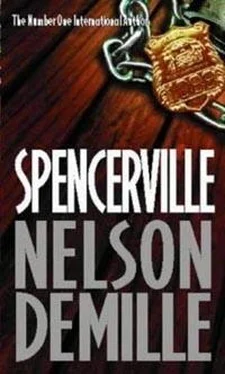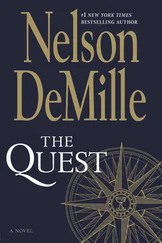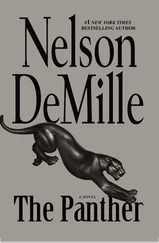He usually replied with words like, "How I envy you your stability, children, community."
He'd never married, Annie never divorced, and Cliff Baxter did not conveniently die. Life went on, the world moved forward.
He was in Saigon on his third tour when the North Vietnamese arrived in 1975, and he took one of the last helicopters out. He wrote to Annie from Tokyo, "I knew this war was lost five years ago. What fools we've all been. Some of my staff have resigned. I'm considering the same."
She replied, "When we played Highland, we were down 36-0 at the half. You went out there for the second half and played the best game I ever saw you play. We lost, but what do you remember best, the score or the game?"
Keith listened to a nightingale in the far-off tree line, then looked out at the Mullers' farmhouse. The kitchen was lit, and dinner was probably being served. He supposed that he'd played a more interesting game than the Mullers, but at the end of the day, they gathered together for dinner. He honestly missed having children, but in some odd way, he was happy that Annie did. He closed his eyes and listened to the night.
He'd almost married, twice in fact, during the next five or six years; once to a colleague he served with in Moscow, once to a neighbor in Georgetown. Each time, he broke it off, knowing he wasn't ready. In fact, he was never going to be ready, and he knew it.
He decided that the letters had to stop, but he couldn't make the break completely. Instead, he let months go by before answering her, and his letters were always short and remote.
She never commented on the change in tone, or the infrequency of his letters, but went on writing her two or three pages of news, and once in a while, reminisced. Eventually, though, she followed his lead, and they wrote less frequently, and by the mid-eighties, it seemed as though the letter relationship had ended, except for Christmas cards and birthday cards.
He had returned to Spencerville now and then, of course, but he never told her in advance, intending each time to see her when he was there, but he never did.
Sometime around 1985, she'd written to him after one of his visits, "I heard you were in town for your aunt's funeral, but by then you'd left. I would have liked to have a cup of coffee with you, but maybe not. Before I found out for sure you'd left, I was a nervous wreck thinking you were in town. After I was sure you'd gone, I felt relieved. What a coward I am."
He had replied, "I'm afraid I'm the coward. I'd rather go into combat again than run into you on the street. I did drive past your house. I remember when old Mrs. Wallace lived there. You've done a nice job restoring it. The flowers are very nice. I felt very happy for you." He'd added, "Our lives took different paths in 1968, and those paths cannot cross again. For us to meet again would mean leaving our paths and traveling into dangerous territory. When I'm in Spencerville, I'm just passing through, and I intend to do no harm while I'm there. If, on the other hand, you ever find yourself in Washington, I'd be happy to have that cup of coffee with you. I'm leaving in two months for London."
She did not reply immediately, but wrote him in London, and never mentioned the last exchange of letters, but he remembered her reply. She'd written, "My son, Tom, played his first football game on Saturday, and I thought of the first time I sat in the stadium and saw you come onto the field in uniform. You don't have all these familiar places and things around you, but I do, and sometimes something like a football game makes me remember, and I get teary. Sorry."
He'd replied immediately, and without any pretense at being cool, wrote, "No, I don't have those familiar places and things around to remind me of you, but whenever I'm very lonely or frightened, I think of you."
After that, their correspondence increased, but more to the point, it had taken on a more intimate tone. They were not kids anymore, but were approaching middle age, with all that implied. She wrote to him, "I can't imagine not seeing you one more time."
He'd replied, "I promise you, God willing, we'll meet again."
Apparently, God was willing.
Yet the last six years or so had passed without that promised meeting, and perhaps he was waiting for something to happen, something like a divorce, or her falling ill. But nothing of the sort happened. His parents moved from Spencerville, and he had no reason to return.
The Berlin Wall fell in 1989, and he was there to see it, then he was posted again to Moscow and witnessed the attempted coup of August 1991. He was at the very top of his career and was helping to make policy in Washington. His name was mentioned in the newspapers now and then, and he felt somewhat fulfilled professionally; but personally, he knew very well there was something missing.
The euphoria of the late 1980s became the letdown of the early '90s. There was a Churchill paraphrase that had been making the rounds among his colleagues — The war of the giants is over, the pygmies have begun. Needing fewer people for the wars of the wars of the pygmies, his colleagues were being told to go home, and finally he, too, was asked to leave, and here he was.
Keith opened his eyes and stood. "Here I am."
He looked around at the burial mound and, for the first time, made the connection between this mound and the similar burial mounds he'd seen in Vietnam. The burial mounds being the only high terrain in otherwise flat wet rice paddies, his platoon would often dig into them for night defensive positions. This was desecration, of course, but good tactics. Once, an old Buddhist monk had come up to him while his platoon was digging and said to him, "May you live in interesting times." Young Lieutenant Landry had taken it as a blessing of some sort, and only afterward learned that it was an ancient curse. And much afterward, he came to understand it.
The sun had set, but the moon illuminated the fields as far as he could see. It was quiet here, and the air smelled of good earth and crops. It was one of those beautiful evenings that would stick in your mind for years afterward.
He came down from the mound and walked between the rows of corn. He remembered the first time his father had planted forty acres of corn as a test crop, and, as the corn started to get higher, Keith had been fascinated with it. It formed an incredible maze, acres of high green walls, an enchanted world for him and his friends. They played hide-and-seek, they made up new games, they spent hours getting lost and pretending that there was some danger lurking in the maze. The fields were deliciously scary at night, and they often slept out under the stars, between the rows, armed with BB guns, posting guards through the night, getting themselves worked up into a state of pure terror.
We were all little infantrymen in training, he thought. He didn't know if that was biological or perhaps a cultural memory from the days when this place had been the western frontier. Lacking any real danger, we had to create one, we resurrected long-dead Indians, transported wild beasts to the cornfields, and imagined bogeymen. Then, when the real thing came along — the war — most of us were ready. That was what had really happened to him and Annie in 1968. He knew he could have gone to graduate school with her, they could have married and had kids and roughed it together like so many of their college friends. But he was already programmed for something else, and she understood that. She let him go because she knew he needed to go slay dragons for a while. What happened afterward was a series of missed opportunities, male ego, female reserve, failures to communicate, and just plain bad luck and bad timing. Truly, we were star-crossed lovers.
It rained all day, and it was not one of those summer storms from the west or southwest that came and went. It was a cold, steady rain from over Lake Erie, a taste of autumn. The rain was welcome because the corn was not ready and wouldn't be until sometime between Halloween and Thanksgiving. Keith thought if he was still around then, he'd offer the Mullers and the Jenkinses a hand with their harvests. The machinery did most of the work these days, but an able-bodied man who sat around during the harvest was still thought of as a slothful sinner, predestined for hell. People who pitched in, on the other hand, were quite obviously among the saved. Keith had a little trouble with Protestant predestination and suspected that most of his neighbors, except for the Amish, weren't too sure about it themselves anymore. But to play it safe, most people acted like they were among the saved, and, in any case, Keith wanted to bring in a harvest again.
Читать дальше












